#African Identity
Photo

Namsa Leuba, Untitled II Cocktail (2011)
#namsa leuba#photographer#untitled ii cocktail#culture#swiss-guinean art director#african identity#art
0 notes
Text
Long Live, the Queen
Long Live, the Queen
We have these walks, Abdelfatah and I. Began, once a week, became once in 6 months, and lately exceedingly infrequent as our days become more governed by routine—their onslaught more identical. We now count them from bill paid to when we have to pay the next.
And inside this mundane yet overwhelming quest for survival, it’s no surprise life feels a little more constricting at times, more…

View On WordPress
0 notes
Text
Sri Lankan Fairies and Senegalese Goddesses: Mixing Mythology as a Mixed Creator
[Note: this archive ask was submitted before the Masterpost rules took effect in 2023. The ask has been abridged for clarity.]
@reydjarinkenobi asked:
Hi, I’m half Sri Lankan/half white Australian, second gen immigrant though my mum moved when she was a kid.
My main character for my story is a mixed demigod/fae. [...] Her bio mum is essentially a Scottish/Sri Lankan fairy and her other bio mum (goddess) is a goddess of my own creation, Nettamaar, who’s name is derived from [...] Wolof words [...]. The community of mages that she presided over is from the South Eastern region of Senegal [...] In the beginning years of European imperialism, the goddess basically protected them through magic and by blessing a set of triplets effectively cutting them off from the outside world for a few centuries [...]
I was unable to find a goddess that fit the story I wanted to tell [...] and also couldn’t find much information on the internet for local gods, which is why I have created my own. I know that the gods in Hinduism do sort of fit into [the story] but my Sri Lankan side is Christian and I don’t feel comfortable representing the Hindu gods in the way that I will be this goddess [...]. I wanted to know if any aspect of the community’s history is problematic as well as if I should continue looking further to try and find an African deity that matched my narrative needs?
I was also worried that having a mixed main character who’s specifically half black would present problems as I can’t truly understand the black experience. I plan on getting mixed and black sensitivity readers once I finish my drafts [...] I do take jabs at white supremacy and imperialism and I I am planning to reflect my feelings of growing up not immersed in your own culture and feeling overwhelmed with what you don’t know when you get older [...].
I’m sorry for the long ask but I don’t really have anyone to talk to about writing and I’m quite worried about my story coming across as insensitive or problematic because of cultural history that I am not educated enough in.
Reconciliation Requires Research
First off: how close is this world’s history to our own, omitting the magic? If you’re aiming for it to be essentially parallel, I would keep in mind that Senegal was affected by the spread of Islam before the Europeans arrived, and most people there are Muslim, albeit with Wolof and other influences.
About your Scottish/Sri Lankan fairy character: I’ll point you to this previous post on Magical humanoid worldbuilding, Desi fairies as well as this previous post on Characterization for South Asian-coded characters for some of our commentary on South Asian ‘fae’. Since she is also Scottish, the concept can tie back to the Celtic ideas of the fae.
However, reconciliation of both sides of her background can be tricky. Do you plan on including specific Sri Lankan mythos into her heritage? I would tread carefully with it, if you plan to do so. Not every polytheistic culture will have similar analogues that you can pull from.
To put it plainly, if you’re worried about not knowing enough of the cultural histories, seek out people who have those backgrounds and talk to them about it. Do your research thoroughly: find resources that come from those cultures and read carefully about the mythos that you plan to incorporate. Look for specificity when you reach out to sensitivity readers and try to find sources that go beyond a surface-level analysis of the cultures you’re looking to portray.
~ Abhaya
I see you are drawing on Gaelic lore for your storytelling. Abhaya has given you good links to discussions we’ve had at WWC and the potential blindspots in assuming, relative to monotheistic religions like Christianity, that all polytheistic and pluralistic lore is similar to Gaelic folklore. Fae are one kind of folklore. There are many others. Consider:
Is it compatible? Are Fae compatible with the Senegalese folklore you are utilizing?
Is it specific? What ethnic/religious groups in Senegal are you drawing from?
Is it suitable? Are there more appropriate cultures for the type of lore you wish to create?
Remember, Senegalese is a national designation, not an ethnic one, and certainly not a designation that will inform you with respect to religious traditions. But more importantly:
...Research Requires Reconciliation
My question is why choose Senegal when your own heritage offers so much room for exploration? This isn’t to say I believe a half Sri-Lankan person shouldn’t utilize Senegalese folklore in their coding or vice-versa, but, to put it bluntly, you don’t seem very comfortable with your heritage. Religions can change, but not everything cultural changes when this happens. I think your relationship with your mother’s side’s culture offers valuable insight to how to tackle the above, and I’ll explain why.
I myself am biracial and bicultural, and I had to know a lot about my own background before I was confident using other cultures in my writing. I had to understand my own identity—what elements from my background I wished to prioritize and what I wished to jettison. Only then was I able to think about how my work would resonate with a person from the relevant background, what to be mindful of, and where my blindspots would interfere.
I echo Abhaya’s recommendation for much, much more research, but also include my own personal recommendation for greater self-exploration. I strongly believe the better one knows oneself, the better they can create. It is presumptuous for me to assume, but your ask’s phrasing, the outlined plot and its themes all convey a lack of confidence in your mixed identity that may interfere with confidence when researching and world-building. I’m not saying give up on this story, but if anxiety on respectful representation is a large barrier for you at the moment, this story may be a good candidate for a personal project to keep to yourself until you feel more ready.
(See similar asker concerns here: Running Commentary: What is “ok to do” in Mixed-Culture Supernatural Fiction, here: Representing Biracial Black South American Experiences and here: Am I fetishizing my Japanese character?)
- Marika.
Start More Freely with Easy Mode
Question: Why not make a complete high-fantasy universe, with no need of establishing clear real-world parallels in the text? It gives you plenty of leg room to incorporate pluralistic, multicultural mythos + folklore into the same story without excessive sweating about historically accurate worldbuilding.
It's not a *foolproof* method; even subtly coded multicultural fantasy societies like Avatar or the Grishaverse exhibit certain harmful tropes. I also don't know if you are aiming for low vs high fantasy, or the degree of your reliance on real world culture / religion / identity cues.
But don't you think it's far easier for this fantasy project to not have the additional burden of historical accuracy in the worldbuilding? Not only because I agree with Mod Marika that perhaps you seem hesitant about the identity aspect, but because your WIP idea can include themes of othering and cultural belonging (and yes, even jabs at supremacist institutions) in an original fantasy universe too. I don't think I would mind if I saw a couple of cultural markers of a Mughal Era India-inspired society without getting a full rundown of their agricultural practices, social conventions and tax systems, lol.
Mod Abhaya has provided a few good resources about what *not* to do when drawing heavily from cultural coding. With that at hand, I don't think your project should be a problem if you simply make it an alternate universe like Etheria (She-Ra and the Princesses of Power), Inys (The Priory of the Orange Tree) or Earthsea (the Earthsea series, Ursula K. Le Guin). Mind you, we can trace the analogues to each universe, but there is a lot of freedom to maneuver as you wish when incorporating identities in original fantasy. And of course, multiple sensitivity readers are a must! Wishing you the best for the project.
- Mod Mimi
#asks#multiracial#multicultural#south asian#sri lankan#senegalese#west african#identity#representation#worldbuilding#fantasy#mythology#folklore#fairies#deities#adoption#identity issues#mixed experiences#coding
591 notes
·
View notes
Text
Black Woman CONVERTS To Republican Then GOES OFF On Hateful Democrats & ...
youtube
#politics#race#black people#black culture#identity politics#conservative#donald trump#african americans#kamala harris#2024 presidential election#liberal#democrats#republicans#the economy#fear mongering#Youtube
60 notes
·
View notes
Note
No nuance are you mixed race
Yes
No
Thanks anon for submitting! If you want your own question answered, feel free to submit polls via my ask box
#poll#polls#tumblr polls#pollblr#augmented polls#race#ethnicity#demographics#biracial#mixed race#multiracial#hispanic#latino#black tumblr#asian#african american#blasian#wasian#racial identity#white people#black pride#middle eastern#southeast asian
36 notes
·
View notes
Text
Sponsored by Archewell of Course
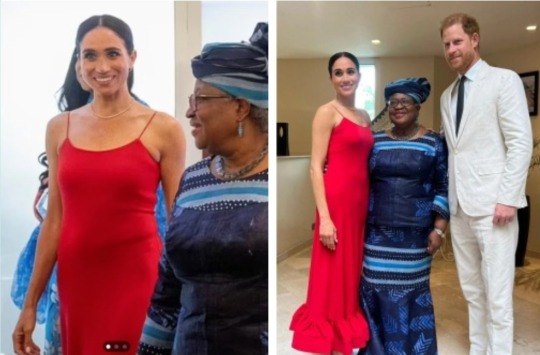
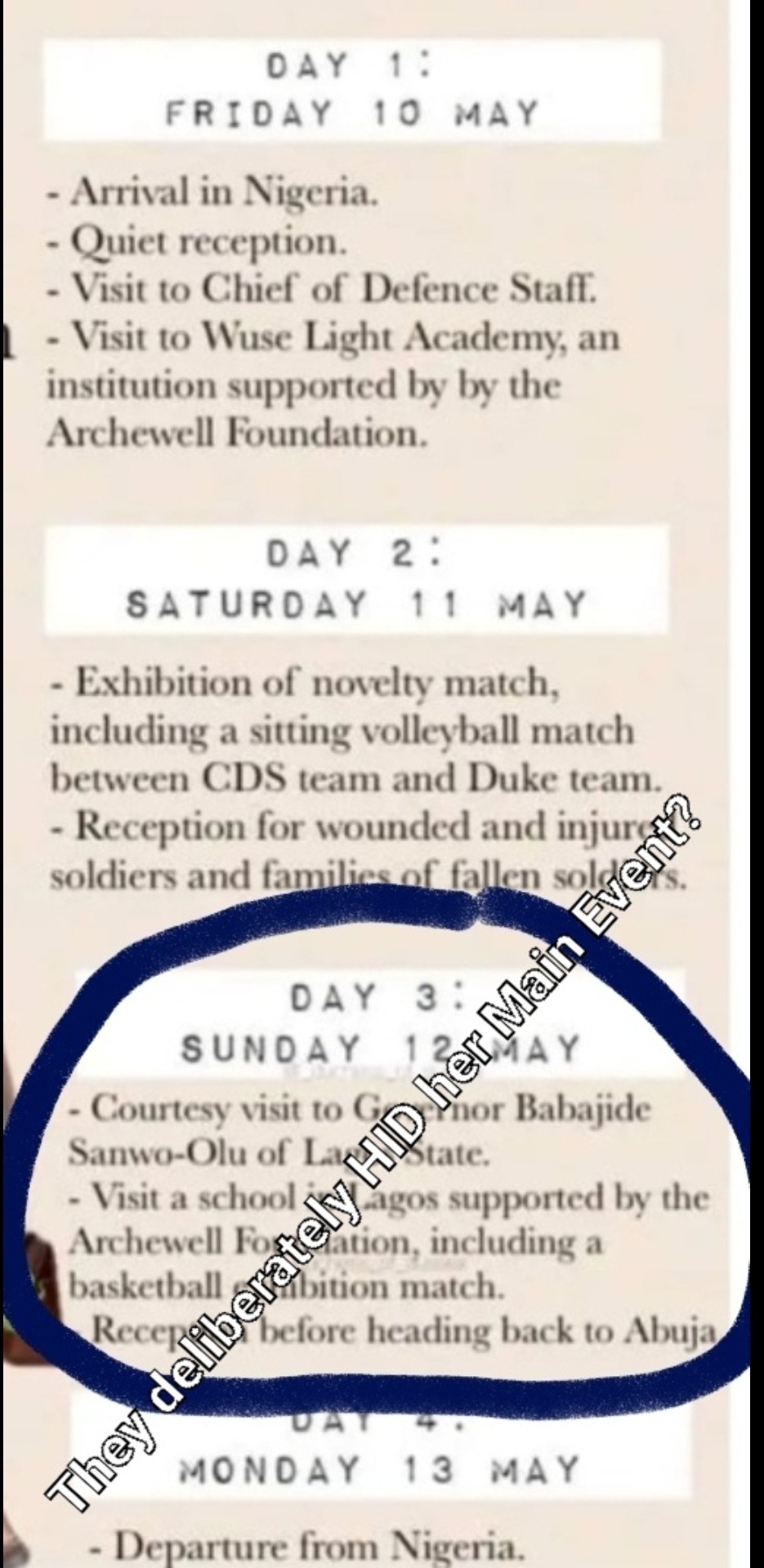
Finally we learn the true purpose of this fake royal inGRIFTus visit: MEgain's dream to purcha$e (not earn) a political appointment as an Ambassador for the perks: IPP status, a NYC apartment, luxurious international travel, power, stardom, etc.
In 2021 in the name of vaccine equity (and netflix), The Meghans secured a meeting with several WHO representatives involved w/The Clinton Global Initiative including the UN Under-Secretary General Winnie Byanyima.¹
MEgain replied "It's wonderful to be back..." just to make it clear that THIS trip is all about HER not him.
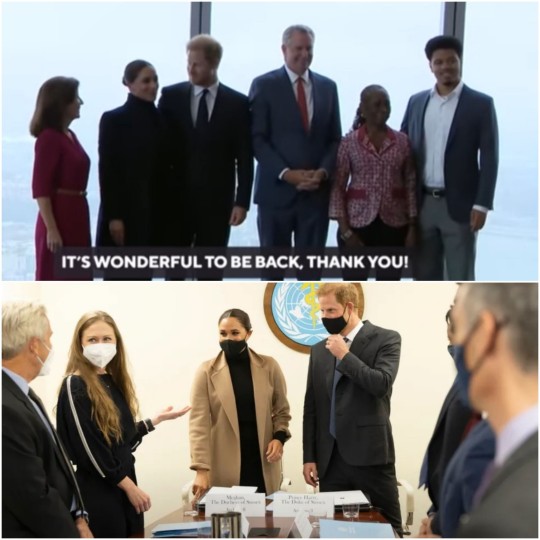
It seems that identifying as Misan Harriman's Nigerian cousin might be her golden ticket to the UN.
Meghan Markle was the most unaccomplished woman in that room of so-called Nigerian women leaders and certainly the least deserving of any political appointments or elected positions. She's treated women and men like TRASH. Hissing and harassing them to such lengths that they require therapy and seek new employment.
Sparry is absolutely complicit in their drive to give his wife undeserved power and authority over institutions and human beings. He'll assist her with love bombing Ngozi even just save what little hair remains on his head. He's a Eunuch.
From the Nigerian Defense Staff Visitor Book of General Christopher Musa
Sparry: "Thank you for welcoming us to your beautiful country. Together we will heal our troops. -Harry
MEgain: "With gratitude for the support of the Invictus community. And for welcoming me home." -M??
Did these female leaders discuss the women who have been raped and violated in the African Parks Scandal?
What about hundreds of abducted Nigerian children, most recently in broad daylight on March 7, 2024?
Look at this lovely room and compare it to the spaces The Meghans publicized to the mainstream media on their tour. Spot the difference. Who do you think matters most, the wounded or the powerful?
The good news is that The MEghans have a very long history of lying, cheating, mistreating innocent people, and even mocking God.
No matter what doors 43% of bull chite will open, God will not be mocked. Sparry had the temerity to walk into Saint Paul's and read from the holy scriptures as if he's some authority on serving God while he nails his bloodline to the media's cross.
Cry out for mercy, Harry!
God will not be mocked, whatever a man sows that will he also reap.
MEgain thinks she can rebrand her ancestry and whore her way into achieving all her personal & professional goals.
Whatever she has sown, she will reap.
"An afternoon of joy, love and sharing of experiences with leading Nigerian women from across the spectrum- Public Sector, Private Sector, Civil Society, a mixture of young and old. Co hosted by Meghan the Duchess of Sussex and myself, and moderated by @MoAbudu
Talking about what it means to be a woman leader, how difficult it is to get there, and the sisterhood and brotherhood that is needed to help make leadership work. Also had a fantastic panel made up of Dr @OmobolaJohnsonHon Minister @DrDorisAnite @achenyoio@miss_asagba Dr. Mairo Mandara and CNN’s @StephanieBusari who all shared their special experiences.
Sponsored by "Archewell Women in Leadership"
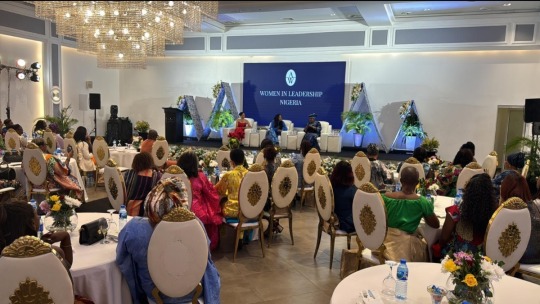
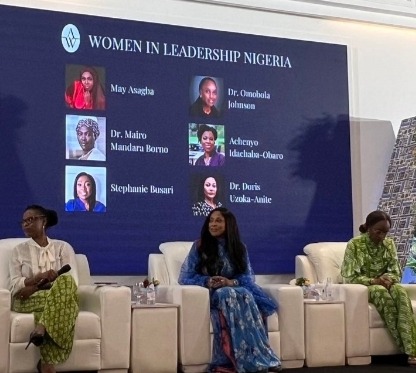
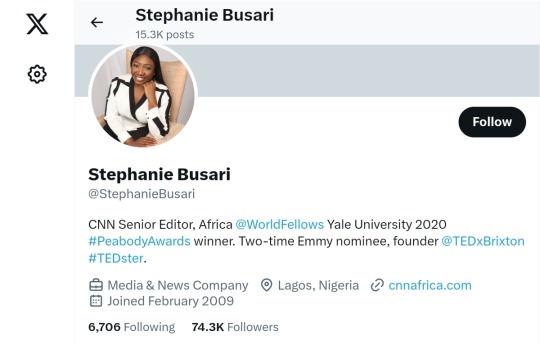
Soho House's Misan Harriman but not Sparry🤔
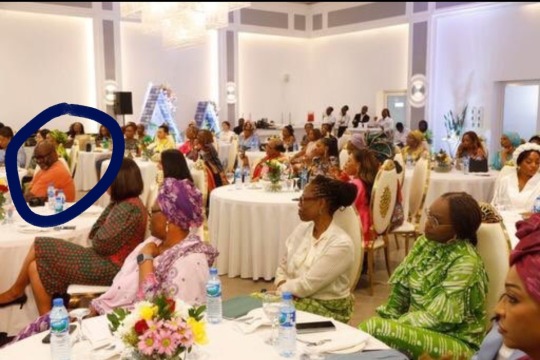
She never cared about those less fortunate people The #Kigali of Today is the African Parks Rapes
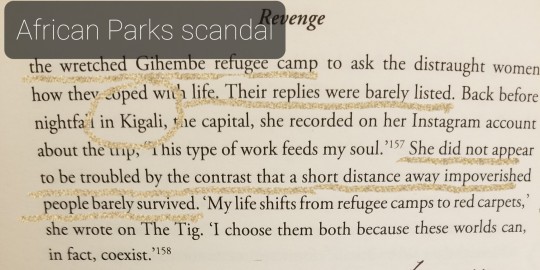
She adored Elizabeth until she refused to place her in the Ambassador position with Emma Watson. When she had the opportunity for REVENGE she took it out on all the women waiting to meet her at the Fiji Market which included the UN Women and the Royal Tour Staff.

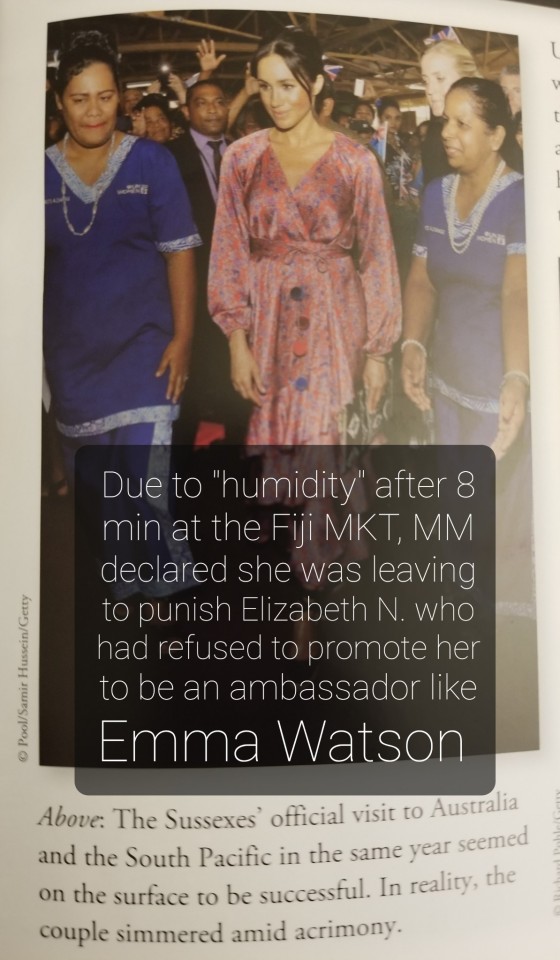
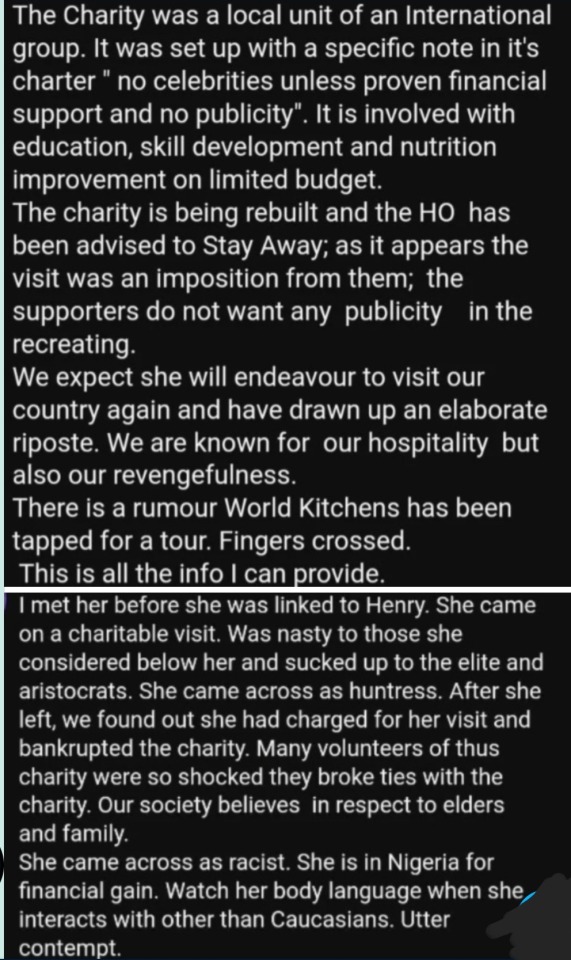
The Malta Ancestry Lie: "oh I do sort of blend in, and it's the loveliest feeling." Unfortunately for the Maltese tourist authority, Meghan's published article made NO MENTION MALTA!!!
"Meghan identifies 1st and foremost as the business woman. Money is Meghan's priority." P77
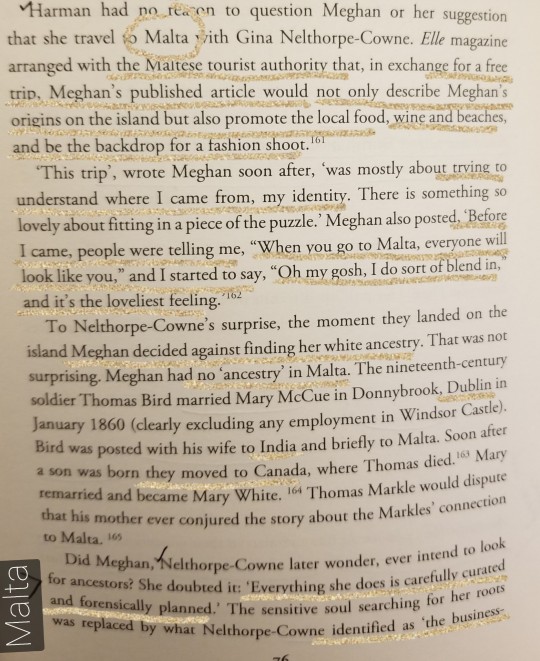
Numerous Bridges Burned. She has markled herself.
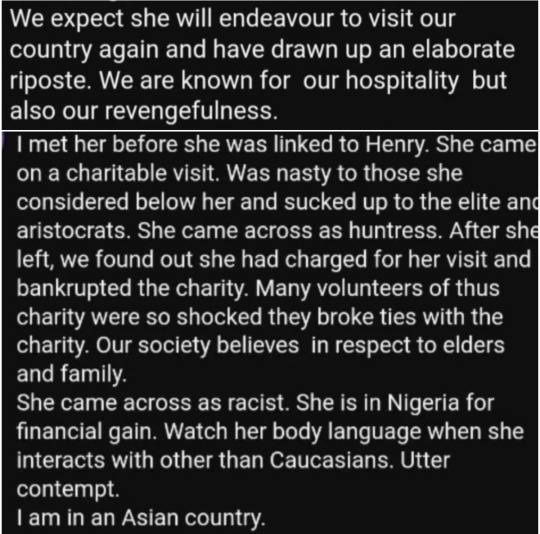
WTO | 2021 News items - History is made: Ngozi Okonjo-Iweala chosen as Director-General
She'sa globalist WEFer: "The General Council decision follows months of uncertainty which arose when the United States initially refused to join the consensus around Dr Okonjo-Iweala and threw its support behind Trade Minister Yoo Myung-hee of the Republic of Korea. But following Ms Yoo's decision on 5 February to withdraw her candidacy, the administration of newly elected US President Joseph R. Biden Jr. dropped the US objection and announced instead that Washington extends its “strong support” to the candidacy of Dr Okonjo-Iweala."
History is made: Ngozi Okonjo-Iweala chosen as Director-General
WTO members made history today (15 February) when the General Council agreed by consensus to select Ngozi Okonjo-Iweala of Nigeria as the organization’s seventh Director-General.
When she takes office on 1 March, Dr Okonjo-Iweala will become the first woman and the first African to be chosen as Director-General. Her term, renewable, will expire on 31 August 2025.
“This is a very significant moment for the WTO. On behalf of the General Council, I extend our warmest congratulations to Dr Ngozi Okonjo-Iweala on her appointment as the WTO's next Director-General and formally welcome her to this General Council meeting,” said General Council Chair David Walker of New Zealand who, together with co-facilitators Amb. Dacio Castillo (Honduras) and Amb. Harald Aspelund (Iceland) led the nine-month DG selection process.
“Dr Ngozi, on behalf of all members I wish to sincerely thank you for your graciousness in these exceptional months, and for your patience. We look forward to collaborating closely with you, Dr Ngozi, and I am certain that all members will work with you constructively during your tenure as Director-General to shape the future of this organization,” he added.
Dr Okonjo-Iweala said a key priority for her would be to work with members to quickly address the economic and health consequences brought about by the COVID-19 pandemic.
“I am honoured to have been selected by WTO members as WTO Director-General,” said Dr Okonjo-Iweala. “A strong WTO is vital if we are to recover fully and rapidly from the devastation wrought by the COVID-19 pandemic. I look forward to working with members to shape and implement the policy responses we need to get the global economy going again. Our organization faces a great many challenges but working together we can collectively make the WTO stronger, more agile and better adapted to the realities of today.” Her full statement is available here.
The General Council decision follows months of uncertainty which arose when the United States initially refused to join the consensus around Dr Okonjo-Iweala and threw its support behind Trade Minister Yoo Myung-hee of the Republic of Korea. But following Ms Yoo's decision on 5 February to withdraw her candidacy, the administration of newly elected US President Joseph R. Biden Jr. dropped the US objection and announced instead that Washington extends its “strong support” to the candidacy of Dr Okonjo-Iweala.
Amb. Walker extended his thanks to all eight of the candidates who participated in the selection process and particularly to Ms Yoo “for her ongoing commitment to and support for the multilateral trading system and for the WTO”. His full statement is available here.
The General Council agreed on 31 July that there would be three stages of consultations held over a two-month period commencing 7 September. During these confidential consultations, the field of candidates was narrowed from eight to five and then two. On 28 October, General Council Chair David Walker of New Zealand had informed members that based on consultations with all delegations Dr Okonjo-Iweala was best poised to attain consensus of the 164 WTO members and that she had the deepest and the broadest support among the membership. At that meeting, the United States was the only WTO member which said it could not join the consensus.
The consultation process undertaken by the chair and facilitators was established through guidelines agreed by all WTO members in a 2002 General Council decision. These guidelines spelled out the key criteria in determining the candidate best positioned to gain consensus is the “breadth of support” each candidate receives from the members. During the DG selection processes of 2005 and 2013, breadth of support was defined as “the distribution of preferences across geographic regions and among the categories of members generally recognized in WTO provisions: that is (Least developed countries), developing countries and developed countries”. This same process, agreed by all members in the General Council in 2020, was strictly followed by Chair Walker and his colleagues throughout the 2020-21 DG selection process.
The process for selecting a new Director-General was triggered on 14 May when former Director-General Mr Roberto Azevêdo informed WTO members he would be stepping down from his post one year before the expiry of his mandate. He subsequently left office on 31 August.
¹Winnie Byanyima UN Under-Secretary Gen & ED of UNAIDS since 2019: "Byanyima was appointed as the executive director of UNAIDS in August 2019, by the United Nations Secretary-General, António Guterres, following a comprehensive selection process that involved a search committee constituted by members of the UNAIDS Programme Coordinating Board. In her new position she concurrently serves as a United Nations Under-Secretary-General. In addition to her role at UNAIDS, Byanyima also serves a two-year term as a member of the World Bank Group’s (WBG) Advisory Council on Gender and Development. Since 2022, she has been a member of the Commission for Universal Health convened by Chatham House and co-chaired by Helen Clark and Jakaya Kikwete."
#Misan Harriman#Soho House#The UN#Nigerian Scammers#megxit#spare us#meghan markle#worldwide privacy tour#Arche Scam#fake royal tour#meghan markle is a liar#meghan markle is a bully#meghan markle is a fraud#revenge#tom bower#malta#seeking her identity#finding freebies#ambassador dreams#new york city#political appointment#money is her identity#43% bs#frauds#Nigerian Frauds#ancestry#African Parks Scandal#Bring Back Our NIGERIAN GIRLS 2.0#markled nigeria 🇳🇬#inGRIFTus
60 notes
·
View notes
Text
Are there Black dialects of Spanish?

Some people got a surprising result after taking an MIT dialect quiz. It was meant to guess what U.S. dialect the test taker spoke and the person's native language. As results started coming in, many Spanish speakers saw their English dialect had been marked as “U.S. Black Vernacular/Ebonics”
But what's the connection between speaking Spanish and U.S. Black Vernacular?
In the United States, dialects spoken by African Americans are sometimes referred to as Black English, African American Vernacular English, or even Ebonics. Though the terms have had different levels of popularity, having a specific name at all has given African Americans the ability to reclaim their language practices as a joyous part of their identity.
But much less common are terms and discussions about Blackness and Black language beyond English. If Black English dialects exist, are there also Black forms of other languages due to colonization? For example, are there Black Spanishes and Black Portugueses, too? Read more here.
Source: Are there Black dialects of Spanish? by Aris M. Clemons
Visit www.attawellsummer.com/forthosebefore to learn more about Black history.
Need a freelance graphic designer or illustrator? Send me an email.
#black history#Afro-Latino#diaspora#African diaspora#dialects#linguistics#race#identity#language#Spanish#AAVE#ebonics#African American Vernacular English
115 notes
·
View notes
Text
#kenya#blacklivesmatter#black lives matter#east africa#billgates#end white supremacy#digital identity#africa#black people#african#african puppets
47 notes
·
View notes
Text
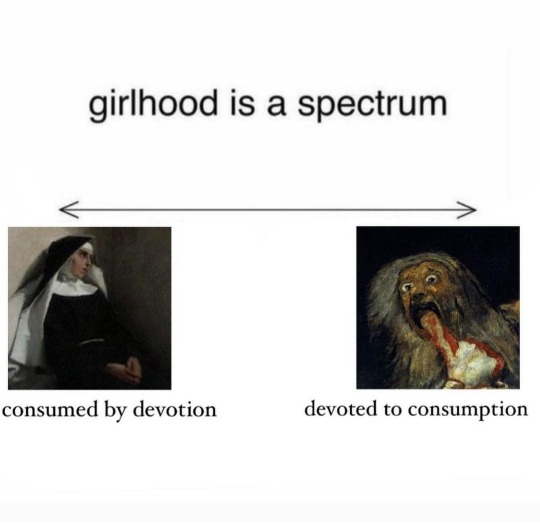
#girlhood!!!!! girlhood amirite???!#feel free to reblog but unrelated tags ahead:#unrelated vent tags but like i cannot explain the acid trip of being in my international law class#and mentioning anything about palestine and that fucking CRACKHEAD bitch !!!everytime!!! turns to me and says:#“as a white south african how do you feel about the treatment of white farmers” girl im gonna fucking kill you#this genuinely keeps unearthing a biblical anger in me. i mean my mother is just a wicked person but my dad really let me grow up#without a tradition. being without a tradition is about the most dreadful thing my dad ever did to me thanks you FUCK!#i cant reconcile my identity with anything. caught somewhere between the way that bitch knows how much i hate afrikaans#exclusively speaking to me in afrikaans and my dad who taught me nothing. okay then !!! anyway like obvi not thinking abt having kids at 22#but definitely sure now that im not having kids ever because this corrosive resentment rears its head in mundane moments#bc its always just under the surface#anyway wONT ANYONE THINK ABOUT THE POOR WHITE FARMERS!!!!!!!!!!#lol.
49 notes
·
View notes
Text
Menelik Shabazz - Step Forward Youth (1977)
33 notes
·
View notes
Text
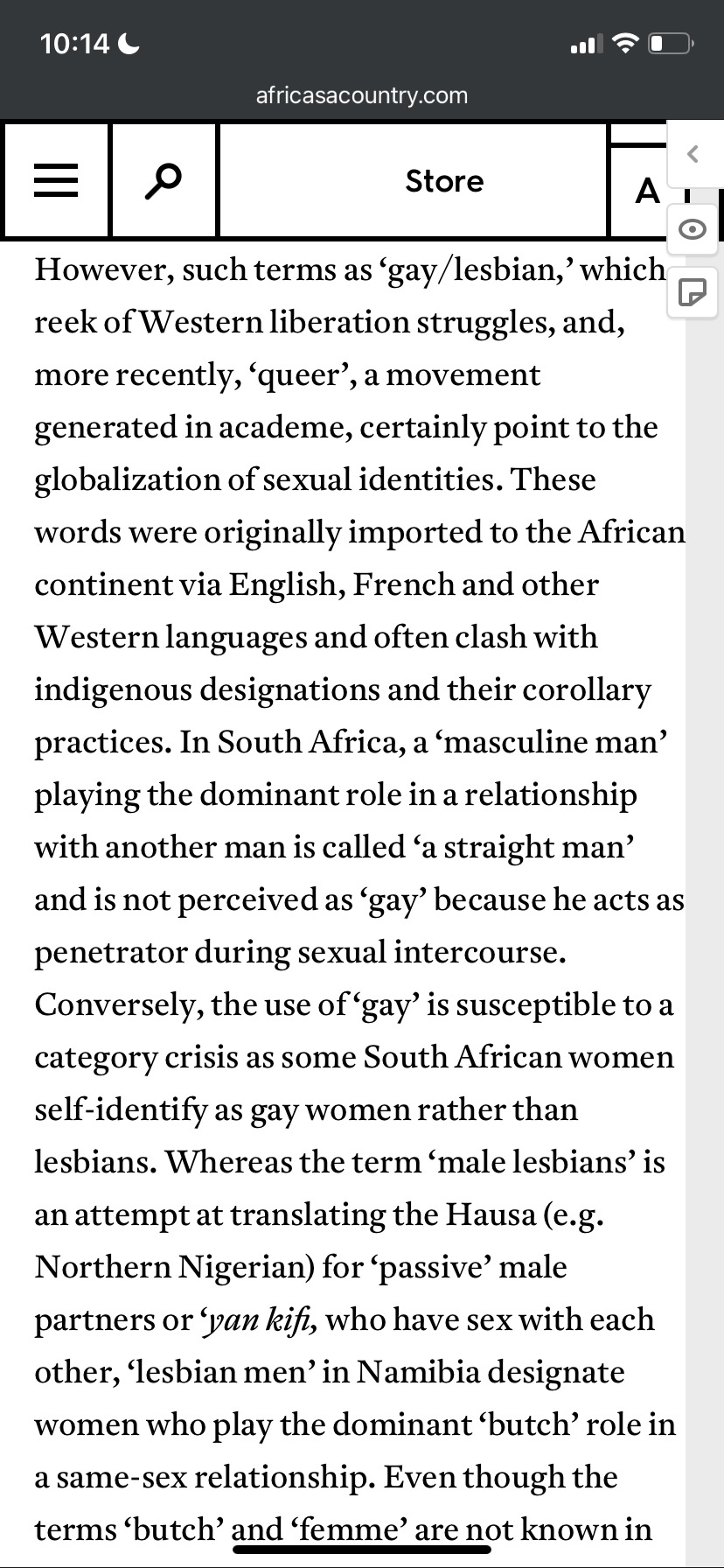
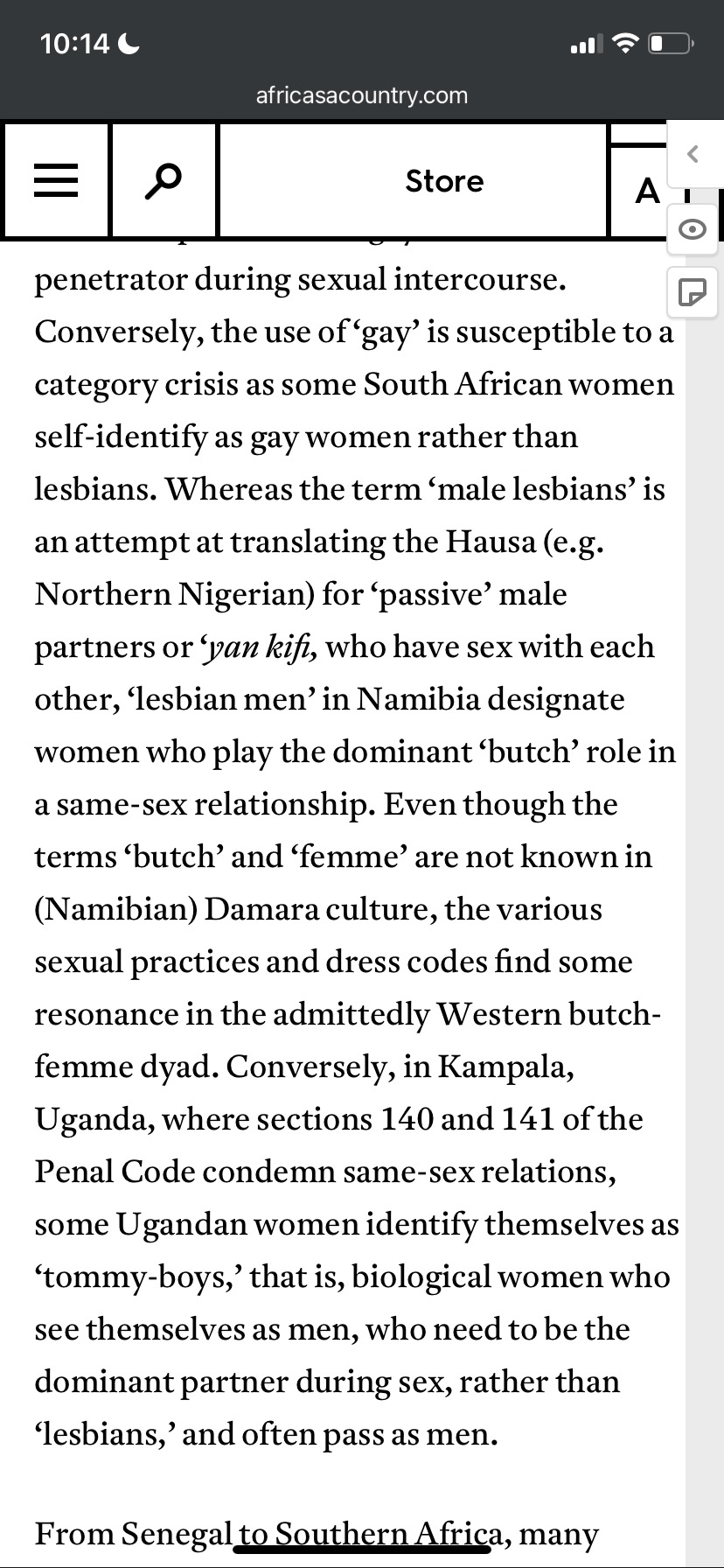
If you were wondering why many lesbians of color are fighting back against identity policing and rightfully calling it out as white supremacy, it is because this rhetoric is dangerous, harmful, and antithetical to our liberation. Invalidating lesbian manhood is rooted in antiBlackness and antiIndigeneity. Excluding lesbians of color for our race and culture is colonization in action. Excluding trans lesbians of color for our cultural gender and sexuality and for being trans in a way that subverts colonial gender systems is racist and transphobic. here is a fantastic article that talks about African gender and sexuality and highlights the existence of male lesbians or lesbian men. As an Indigenous person of triracial descent, I am proud of my Indigenous cultural gender and sexuality, and I will not allow white supremacists and queer assimilationists to erasure the history and cultures of my ancestors. Male lesbians and lesbian men are STILL HERE. We are proudly Black, Brown, and Indigenous! This is our tradition!
https://africasacountry.com/2014/03/africa-has-always-been-more-queer-than-generally-acknowledged
#indigenous#two spirit#black and brown gender#native#native safe space#native gender#cultural gender#male lesbian#lesbian men#lesbian man#non-binary lesbian#genderfluid lesbian#lesbian history#lesbians of color#indigenous genders#queer gender#African diaspora#ftm lesbian#butch lesbian#he him lesbian#identity policing is colonization#protect indigenous traditions#respect indigenous gender#respect cultural gender#colonial gender binary#indigenous gender systems
19 notes
·
View notes
Note
Curious what you disagree with Sid on in that interview! (I mean this in a genuine way, I don’t agree with everything he says and I always love to hear your thoughts) (for instance I agree with the OP of that post that the idea that the script in A Dangerous Man: Lawrence After Arabia wasn’t also all-in on the homoeroticism between his and Ralph Fiennes’ character is bonkersssss lol)
Hi, anon! Maybe disagree is even too strong a word... I think I don't resonate with his interest in a post-identity future. He feels very strongly and positively about the character of Bashir's ethnic ambiguity, such as it is, and for me personally I think the eliding of cultural specificity is not utopian. At least part of what he's saying is he wants to play characters who are of a certain racial or ethnic background without that having to be treated as a personality trait or the core of their storyline or where all their character's conflict has to come back to, which is certainly fair and I absolutely connect with! But I want Jewish characters in Star Trek in a way that he's not concerned about having Muslim characters Star Trek, and we each have our own reasons for what we want, and it's not really a right-or-wrong scenario.
#thinking about how avery brooks intentionally and specifically brought in afrofuturity and black fatherhood#which in the interview sid acknowledges and admires#but avery wanted his character informed by blackness and african roots and sid didn't#but then sid appears to have something of a complex relationship to his mena identity#which again is completely fair
22 notes
·
View notes
Text

Unraveling Identity: Cam'ron, African Americans, and a Pan-African Perspective
#cam'ron#african culture#african americans#pan africanism#black power#dr amos wilson#amos wilson#blueprint for black power#black identity#africa#african development#pan african#hip hop
19 notes
·
View notes
Text
Why Some Black People Are Voting For Trump
youtube
#politics#race#black people#african americans#black culture#identity politics#conservative#donald trump#2024 presidential election#liberal#democrats#republican#kamala harris#joe biden#the economy#Youtube
20 notes
·
View notes
Text
Man I wish the White Fang had numerous community programs like the BPP did. It would've been super cool to see Adam and Blake interact with other faunus outside of missions and the WF. I like to imagine Adam volunteering to teach people self defense while Blake spends some down time teaching people how to read and maybe they're both banned from the kitchens because they accidentally started a small grease fire because they're used to cooking on the road and not with fancy dancy equipment
#rwde#god i fucking wish the white fang was done so much better#i wish all of rwby was done better#remnant is so isolated and soulless it genuinely hurts to think abt#whats the use of such a vast open and colorful world if youre not going to do anything w it?#the white fang absolutely shouldve been abt community and regaining their identities and freedom#esp the community part#its so depressing that blake never talks to any of the faunus on menagerie until shes asking them to fight for haven#adam never really gets to talk to anyone period#ilia and sun talk like#once? maybe twice?#everyone's so isolated it's painful#esp when you compare it to actual people and history#recently read a post abt how an African family managed to find out where they came from thanks to a song passed from mother to daughter#wheres that kind of solidarity? that history? that culture? where are the songs of resistance or dances altered to be done w mining gear?#idk im just in a weird headspace rn. reading history just Does Something to me yknow?
43 notes
·
View notes
Text
The Philosophy of Ubuntu
The philosophy of Ubuntu is a traditional African ethical and philosophical concept that emphasizes community, interconnectedness, and shared humanity. Originating from the Bantu languages of southern Africa, the term "Ubuntu" can be translated as "I am because we are" or "humanity towards others." It reflects the belief that an individual's identity and well-being are deeply rooted in their relationships with others and that the community's welfare is integral to the individual's welfare.
Key Concepts in the Philosophy of Ubuntu:
Interconnectedness:
Communal Identity: Ubuntu posits that individuals are intrinsically linked to their communities. A person is not seen as an isolated entity but as part of a larger social fabric. This interconnectedness means that one's actions affect others, and the community's well-being is vital to each individual's well-being.
Relational Ontology: The concept suggests that being human is fundamentally about relationships with others. One's existence and identity are defined through interaction and connection with other people.
Human Dignity and Respect:
Inherent Worth: Ubuntu emphasizes the inherent dignity of every human being. It advocates for treating others with respect, compassion, and empathy, recognizing that everyone shares a common humanity.
Mutual Respect: In Ubuntu, respect is not merely a social nicety but a fundamental ethical obligation. Treating others with dignity is seen as essential to maintaining harmony and community cohesion.
Collective Responsibility:
Shared Responsibility: Ubuntu promotes the idea that members of a community have a collective responsibility for each other’s welfare. This includes supporting those in need, resolving conflicts through dialogue and reconciliation, and fostering an environment where everyone can thrive.
Ethics of Care: The philosophy encourages an ethic of care, where individuals actively contribute to the well-being of others, understanding that their own well-being is tied to the community's overall health.
Social Harmony and Reconciliation:
Peace and Reconciliation: Ubuntu values social harmony and seeks to resolve conflicts through restorative rather than retributive justice. The goal is to restore relationships and repair the social fabric, often through forgiveness and reconciliation.
Consensus Building: Decision-making within an Ubuntu framework often involves consensus-building processes, where the views of all community members are considered, and solutions are sought that benefit the collective.
Solidarity and Cooperation:
Unity and Cooperation: Ubuntu emphasizes solidarity, cooperation, and unity among people. It encourages collaborative efforts in all aspects of life, from family and community to work and governance, with the understanding that collective action leads to greater success and fulfillment.
Generosity and Sharing: The philosophy promotes generosity and sharing of resources, knowledge, and support, reflecting the belief that prosperity is achieved through collective effort.
Humanism and Morality:
Moral Framework: Ubuntu provides a moral framework that stresses the importance of kindness, generosity, and ethical behavior. It encourages individuals to act in ways that enhance the community’s well-being and to avoid actions that harm others.
Human-Centered Philosophy: Ubuntu is deeply humanistic, focusing on the value and dignity of each person and the importance of fostering positive human relationships.
Application in Modern Contexts:
Leadership and Governance: Ubuntu has been influential in shaping leadership and governance in post-apartheid South Africa and other African nations. Leaders inspired by Ubuntu prioritize the welfare of their people, seek to heal divisions, and promote social justice.
Global Relevance: While rooted in African traditions, the principles of Ubuntu have been embraced globally as a model for ethical leadership, conflict resolution, and community building. It offers a counterpoint to individualistic and competitive models of society by emphasizing cooperation, empathy, and the common good.
Ubuntu in Philosophy and Ethics:
Comparative Ethics: Ubuntu is often compared with other ethical systems, such as Confucianism, which also emphasizes the importance of relationships and community. It offers a unique perspective on ethics that prioritizes collective well-being over individual autonomy.
Challenges and Critiques: Some critiques of Ubuntu focus on its potential for communal pressure to conform, possibly at the expense of individual freedom. Others argue that while Ubuntu provides a strong ethical foundation, it must be adapted to fit modern, diverse societies.
The philosophy of Ubuntu offers a profound and holistic approach to understanding human relationships, ethics, and community. It underscores the importance of interconnectedness, mutual respect, and collective responsibility, providing a framework for fostering social harmony and promoting the common good. Ubuntu's principles are increasingly recognized and applied beyond African contexts, resonating with global movements toward more compassionate, cooperative, and just societies.
#philosophy#epistemology#knowledge#learning#education#chatgpt#ontology#metaphysics#ethics#Ubuntu#African Philosophy#Interconnectedness#Community#Collective Responsibility#Human Dignity#Social Harmony#Reconciliation#Ethics of Care#Solidarity#Humanism#Restorative Justice#Communal Identity#Moral Philosophy#Empathy and Compassion
5 notes
·
View notes